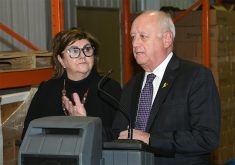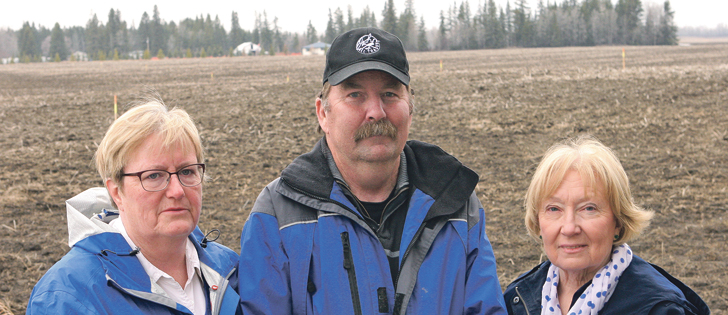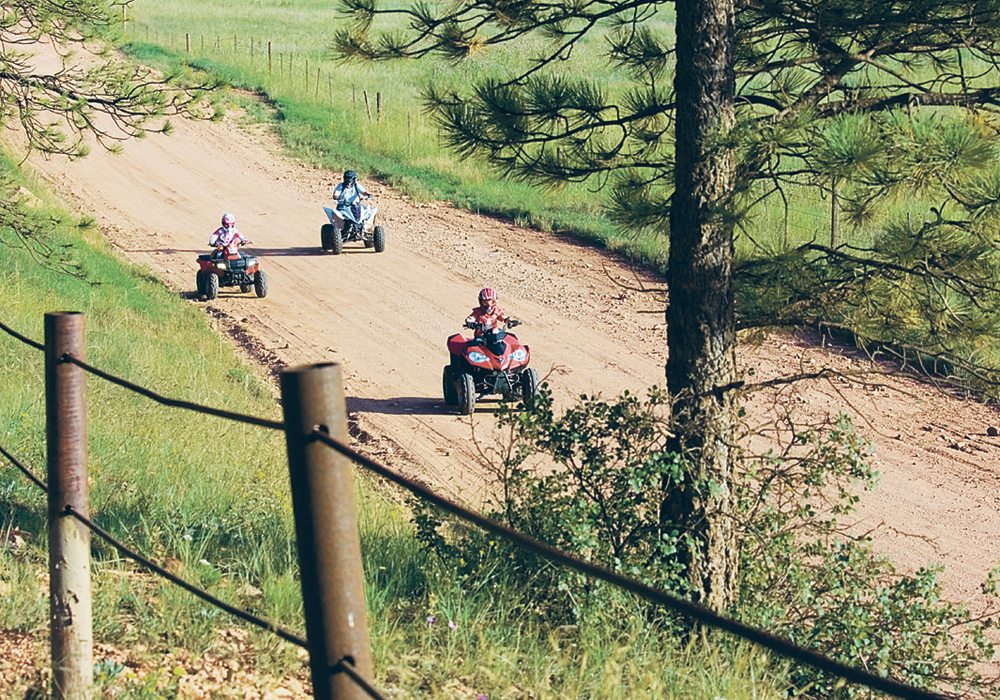Recent events in Thorhild County inspire an apparent groundswell of opposition to rural municipalities’ planning reviews
Residents of Thorhild County in Alberta are pushing back against a proposed bylaw that would require development permits for barbed-wire fences.
The situation in this community of 3,000 people located about 85 kilometres north of Edmonton is sparking widespread attention and sends a warning to other rural residents to keep close tabs on their councils as several land-use bylaws are up for review across Alberta.
Thorhild County resident Michele Mitchell helped organize the opposition to what she called a punitive bylaw that would stymie development. She said the proposal to change the bylaw was carried out in a haphazard manner without taking into consideration the rural lifestyle of the community.
Read Also

Research looks to control flea beetles with RNAi
A Vancouver agri-tech company wants to give canola growers another weapon in the never-ending battle against flea beetles.
“When you read a law, you can’t go by, ‘well they didn’t really mean to say that.’ You have to go by what’s written,” said Mitchell.
What was written on the topic of fences in the Thorhild County draft land-use bylaw left little open for interpretation: “Agricultural District: razor or barbed wire shall not be permitted without a development permit.”
Other issues covered in the draft bylaw such as deck placement and regulations governing hens were also irksome to residents, who held a meeting to organize a campaign against the draft bylaw, attracting nearly 200 residents.
“What makes this stand out is it is so overreaching. In the country, you can have your house positioned almost anywhere,” said Mitchell. “If someone has their deck positioned in front of their house, it really shouldn’t matter.”
The draft bylaw had been in the process of being rewritten since 2021, was presented at two open houses and was subject to a public hearing earlier this year after passing first reading in January.
But in the face of the growing opposition, Thorhild County council held a special meeting on Feb. 2 to rescind the draft bylaw.
However, the issues surrounding land-use bylaws in rural parts of the province appear far from over as an apparent groundswell of support garnered by the actions of Thorhild County residents has sparked interest across Alberta.
“People are frustrated because they are losing control over their own decision making on their land and also, some other counties have posted some really stringent bylaws,” said Mitchell.
Opposition to what was happening in Thorhild has also connected municipal land-use planning to federal initiatives such as Smart Cities, which the government bills as, “empowering communities to address the most pressing needs of their residents through data and connected technology.”
It has also attracted detractors who link changes to municipal land-use bylaws to goals and objectives espoused by organizations such as the World Economic Forum (WEF).
It’s something the president of the Rural Municipalities of Alberta is hearing loud and clear.
“I can assure you none of the motives of any rural municipal leader are driven by external forces in determining land-use planning and governance in Alberta,” said Paul Mclaughlin, who in addition to his role as RMA president is also reeve of Ponoka County. “In fact, it’s the exact opposite. We’re trying to support local governance and local decision making and our actions are counter to that (external forces) narrative.”
Rural residents have always had the ability to freely comment for or against land-use bylaws with county councillors responsive to those concerns, according to McLaughlin. But the polarizing political nature of society these days carries some concerns of how these processes will present themselves in the future.
“Social media has become this engine of rumour. Rumours that become gossip that become truth and we need to get back to the fundamentals of dialogue and good governance,” said McLaughlin. “My municipality is going to be going through a land-use planning exercise and as the reeve of Ponoka County, I can tell you assuredly I’m not tied to any world government, WEF or (United Nations) agendas…. We’re here to make local decisions for local people. That’s who we are.”
The silver lining to what’s happening in the province is that more people are getting involved in the process that often struggles to get people engaged, said McLaughlin.
“People are going to be paying attention when land-use bylaws are going forward. There is no doubt about that,” he said.
As for the future in Thorhild County, Mitchell said residents want to work with the municipality to draw up a better plan.
“There is a lot of things we want to change in our county,” she said. “Our numbers are shrinking and shrinking and that’s not cool. We want to pull people back to our county.”
Mitchell has a message for other rural residents who have upcoming land-use bylaw reviews — they must get involved.
“If they find something going through that’s really unacceptable to them, they should take action. They should bring it up, they should get everybody involved, they should discuss it with their councillors to get those things fixed,” she said. “If they find that there are things happening in their county that they aren’t happy about, go through the process.”


















